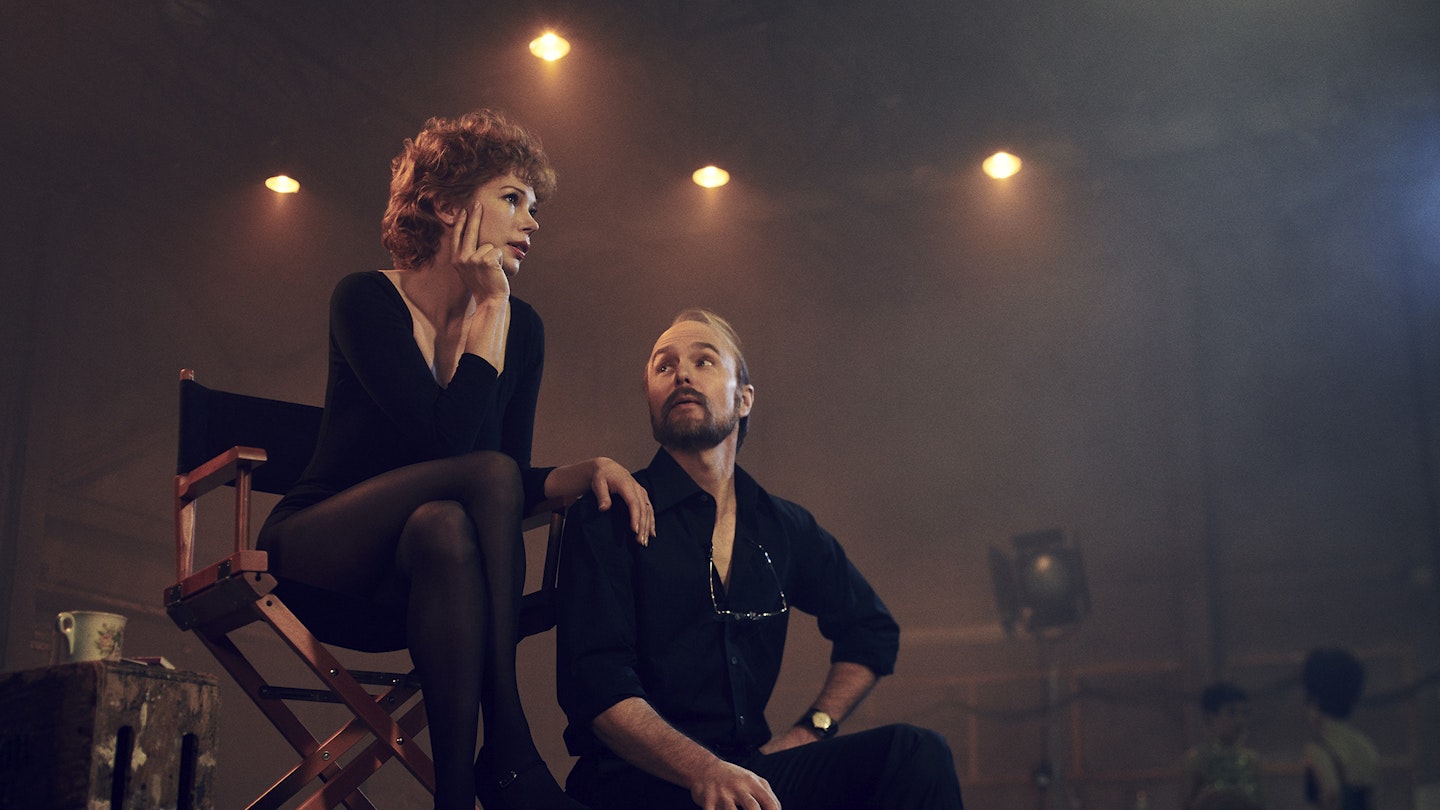Although it may be a difficult sell to audiences not already familiar with the work of Bob Fosse and Gwen Verdon, FX’s new miniseries, screening on BBC Two, does its best to plunge the viewer into their world; the razzmatazz glamour of both stage and screen musical theatre in the late ’60s and early ’70s. The series opens with the hectic choreography of an iconic scene from the 1969 musical Sweet Charity, where gussied-up dancers perform a taut, sexy routine of ‘Big Spender’. Verdon and Fosse’s partnership, in that brief segment, seems rooted in deep trust and instinctive understanding. Verdon seems to know what Fosse wants before he can articulate it. As it turns out, this ‘partnership’ is hardly as mutual as it would first appear.

Sam Rockwell, true to form in his love of playing absolute heels, gives Fosse a shambling, hedonistic profile, but is nonetheless a commanding presence. Notorious for his casting couch tactics with dancers and actresses, he can be as noxious as he is charming, but doubting his creative instincts seems like folly. As Verdon, Michelle Williams steals the show. Her dancer’s elegance and grace is all in her hands and neck, but there’s brittle despair in her large, liquid eyes. As Fosse moves from Broadway to Hollywood with the Oscar-winning Cabaret and Verdon chases down success in a staging of Chicago, the two go through dizzying highs and lows.
Sam Rockwell gives Fosse a shambling, hedonistic profile.
Over eight episodes, the show offers a sometimes confusing collection of flashbacks and forwards throughout the pair’s lives together — and eventually, apart, as a series of affairs and dalliances would cause Verdon to move out. This sense of the relationship running its course and of time running out is heightened by the regular title sequences (‘19 Years Left’) which seem to be counting down to something. Given that Fosse was regularly in ill health, both mental and physical, his deterioration is the obvious indicator. He would die of a heart attack in 1987, aged only 60. Though Fosse/Verdon ends long before this, it’s not difficult to parse that mortality was always close to the surface of Fosse’s screen and stage work.
It’d be ideal to get less home-life interior drama and more of the vitality and ingenuity of Verdon and Fosse’s creative work together. Overall, if there’s something major the show lacks, it’s the corrective energy to give more agency and credit back to Verdon. Instead, the creators choose to focus on Fosse and his own degeneration, more often than not. In spite of this, Fosse/Verdon is still a worthwhile and undeniably stylish exploration of sex, egotism, gender dynamics, and what creating great art took away from its creators.
